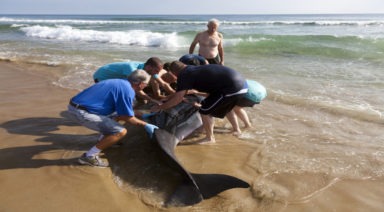A World Without Money

Have you ever thought about what you would do if you didn’t need money to live? Bigger still, have you ever thought what the world would be like if no one needed money to live? I remember the first time I heard of this idea. It was presented in the Zeitgeist films. Before I watched the Zeitgeist films, I had given some thought to what it would be like to change the money system but I never thought what the world would be like without money. I was shocked that I had never considered it.
Is money so ingrained in our psyche that we can’t even conceive of a world without it? Are we that conditioned? Yes.
Take a moment to consider what the world would be like without money. What would you do if your needs were met and you had the time to do the things you wanted to do? Me? I would build more art. I would dance more, sing more. I would dive deeper into quantum physics and I would help build my community.
A moneyless way of thinking helps decondition people from a scarcity mindset and helps humanity build creative solutions to the world’s issues. Approaching our problems from a different perspective is the only way we will ever have a chance at creating effective solutions.
“No problem can be solved from the same level of consciousness that created it.” ::Albert Einstein
Once I started thinking how life could be without money, I knew there was something considerably different about the solutions created from that mindset vs. a status quo mindset. The solutions thought of from a moneyless mindset are farther reaching and more effective in scope.
Who is Questioning the Money Economy?
The Zeitgeist films do a great job describing how a moneyless economy can solve many of the world’s major issues. When I watched these films, my life was changed forever. Watch Zeitgeist: Moving Forward if you want to get your money paradigm blown. Other sources offering interesting perspectives on a moneyless society include the Ubuntu movement and Sacred Economics.
As beneficial as it is to imagine a world without money, there will come a time when we will need to put our no-money where our mouth is and build cities that don’t run on money. To date, there are no real world examples of a society that runs as a moneyless system. The only place that I can think of that comes close is the temporary city of Black Rock City also known as Burning Man.
Many people think of Burning Man as a large festival or event. They don’t usually think of Burning Man as a city. However, there are streets and addresses. There’s a post office, an airport and even a DMV. There are coffee shops, yoga studios and beauty salons, and of course, a plethora of bars and dance clubs. All of these things, and more, are made available for free.
 The Post Office at Burning Man in Black Rock City, Nevada.
The Post Office at Burning Man in Black Rock City, Nevada.
What is Decommodification?
One of Burning Man’s main principles is decommodification.
Decommodification is the process of viewing utilities as an entitlement, rather than as a commodity that must be paid or traded for.
The Burning Man Organization explains that, “In order to preserve the spirit of gifting, our community seeks to create social environments that are unmediated by commercial sponsorships, transactions or advertising. We stand ready to protect our culture from such exploitation. We resist the substitution of consumption for participatory experience.” Because of this principle, there is no money exchanged for the goods or services provided between participants during the entire week of the event. And requests for money are not allowed. The entire city operates on the gift economy.
What is the Gift Economy?
The gift economy is “a mode of exchange where valuables are not traded or sold, but rather given without an explicit agreement for immediate or future rewards. This contrasts with a barter economy or a market economy, where goods and services are primarily exchanged for value received.”
An example of the gift economy that is used worldwide is Open Source software. Developers give freely to the Open Source community without any expectation of payment or return value. This gifting activity has created a large network of developers that continually contribute to each other’s software to improve and/or modify it to serve a broader purpose. This continual web of contribution has helped to create a network of over 19 million people on GitHub dedicated to gifting their knowledge and skills.
In gift economies, the reward is in the sense of contribution, community, honor and prestige, instead of monetary gain.
The positive feeling that gifting engenders helps sustain the community and continually attracts more people to it which allows it to grow and thrive.
This is what has happened to Burning Man over the years. Burning Man had a humble beginning in 1986 with only 20 onlookers. It has grown year over year for the past 30 years to the most recent 2016 event bringing in more than 70,000 participants. I believe the events’ utilization of the gift economy and the resulting feeling of connection is what continually attracts more people each year.
I believe the gift economy is the single most important factor creating Burning Man’s success and social value.
I’ve been to Burning Man six times and I cannot express the difference between my experience there versus my experience in every other part of life. Aside from what you see in pictures – the dancing, fun and art – there is a much deeper experience that is not visible. What you don’t see is the feeling of freedom, love, joy, camaraderie and connection. What else you don’t see is the difference in the way people treat each other and the difference in how they feel about themselves.
People who go to Burning Man describe having an overwhelming sense of freedom and connectedness. I’m not sure that the people themselves see the moneyless system as the reason they feel so free and connected but it’s very much the reason. I’ll explain.
When there is no money exchange and no demand of payment of any kind, this opens up a freedom to participate as much or as little as a person wants.
There is no artificial limit of “I can’t afford it” or “We only serve those who can afford this price.” Everything is open and available to everyone. That evens the playing field for all. When all things are equal, people see each other as equal.
On the contrary, in a money economy, social stratification is inherent in the system. When you have ownership, possession and wealth accumulation, people are automatically separated into categories of “haves” and “have-nots.”
The Psychology of Scarcity
In a monetary system, wealth is based on scarcity. The scarcer something is, the more value it has. The attributed value is fabricated, however. The item itself often times has no inherent value of its own. For example, money has no inherent value of its own. You can’t eat it, drink it or breath it. It’s simply a tool for the exchange of resources. The fact that it’s scarce is the reason people value it. This comes from the psychology of scarcity.
Scarcity is a psychological condition created from lack which forces an individual to focus and concentrate on the thing they are lacking.
This, in turn, has a detrimental effect on the overall cognitive capability of those that are experiencing the lack. In effect, the experience of scarcity creates a pathology. With this information, it can be said that economic value is based on a pathological reaction. However, the pathology is not only experienced by those who lack the resource. It’s also experienced by those who have an abundance of the resource.
The monetary system itself creates pathological behavior in both parties. When operating in a scarcity-based system, the more items a person keeps for themselves, the wealthier they are perceived. In this system, it’s the act of hoarding that creates wealth. The problem is, the act of hoarding by its very nature requires isolation which in the end creates depression.
A New Wealth Based on Abundance
On the contrary, in a gift economy, wealth is based on abundance. The more a person has to give away the wealthier they are perceived and feel. In this system, it’s the act of giving that creates wealth. Giving creates connection with others which creates a feeling of belonging which in the long run, leads to happiness.
The money system and the gift economy are diametrically opposed in their operation and effect on the participants. One creates separation and isolation and the other creates connection and community. Imagine what the world could be like if gifting were to encompass more of our everyday life. What would your life be like if you didn’t need money to live? What could the world be like without money?
It's Time to Ask Whether We're Buying Ethically Mined Crystals

Crystals have become a hot commodity, as an increasing number of people are realizing their multi-faceted healing benefits. This has come to include celebrities, those trying to capitalize off their demand, and the average Joe. But when a natural resource becomes so valued, it’s probably time to start asking whether we’re buying ethically mined crystals or conflict stones.
Buyers and sellers of gems and minerals converge annually in Tucson, Ariz. for arguably the largest convention of its kind. There, minerals are brought in from across the globe, sold to private collectors, or shop owners around the country. Attendees find large specimens, themed displays, and some of the most beautiful examples of just about every gem and mineral known to man.
But where do they all come from and how do they get there? That was a question The New Republic recently asked, wondering whether the acquisition of healing crystals should be viewed through the same lens as conflict diamonds.





































